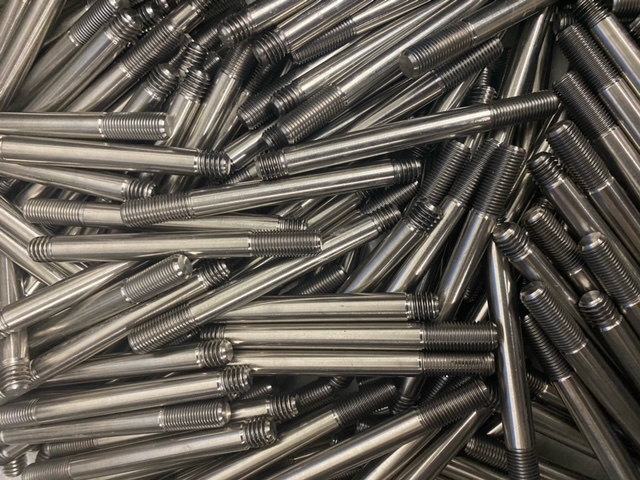One of the many materials in which Rolled Threads Unlimited produces fasteners is stainless steel. Stainless steel is an alloy of iron and chromium, containing at least 10.5% chromium by weight. The exact components and ratios will vary based on the grade, with many grades of stainless steel available.
The two most common stainless steels are types 304 and 316. Both of these 300-grade steels are known for their high resistance to corrosion and good strength and ductility. They are also both austenitic, meaning their primary crystalline structure prevents them from being hardened by heat treatment—but strengthened through cold working, as occurs in Rolled Threads Unlimited’s process of rolling threads.
Type 304 and 316 stainless steel have similar mechanical properties as far as yield and tensile requirements, but the distinction between them can be found in their differing chemical compositions and properties. 304 stainless steel contains 18% chromium and 8% nickel, whereas 316 stainless steel contains 16% chromium and 10% nickel. But the key difference between the grades is the addition of the alloy molybdenum to 316 stainless steel.
For general applications in which the potential for corrosion exists, 304 stainless steel is the most commonly chosen grade. Fasteners made from 304 stainless steel are frequently utilized in the construction, automotive, and power generation industries.
With the addition of molybdenum, 316 stainless steel boasts an increased corrosion resistance, especially for harsh environments that are exposed to chemicals, acids, and saltwater. Fasteners made from 316 stainless steel are regularly used in marine applications and in equipment subjected to chemical processes.
While both type 304 and type 316 stainless steels offer excellent corrosion resistance, their varied chemical compositions affect their properties and determine their suitability for different applications. If you need custom rolled threads (in type 304 or type 316) for your next project, fill out a quote today!

